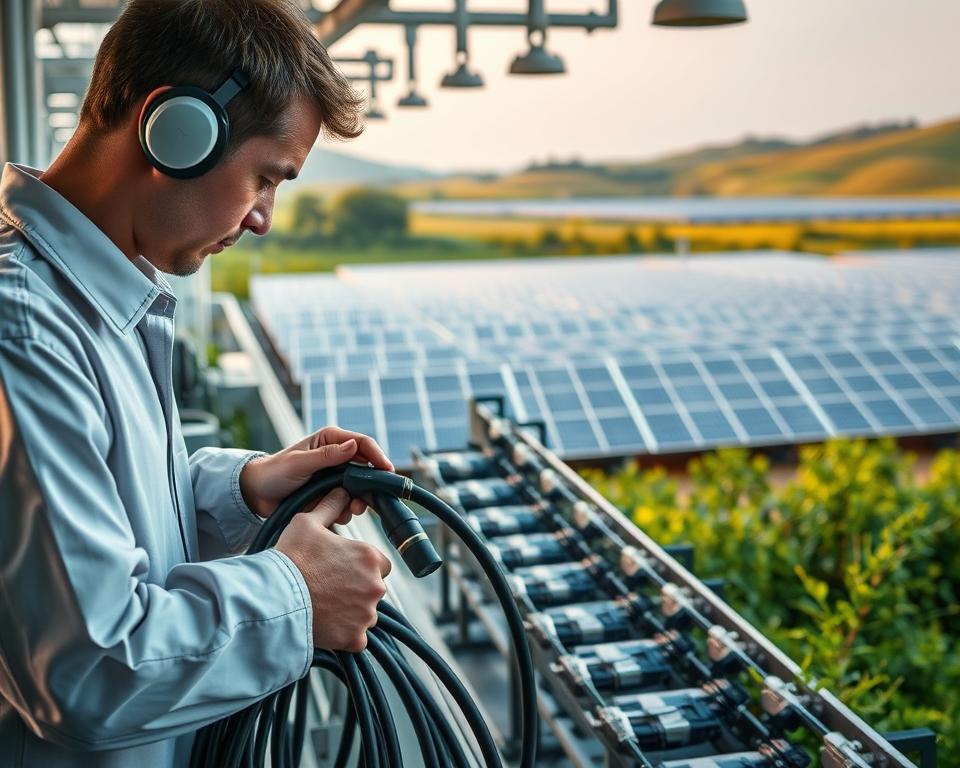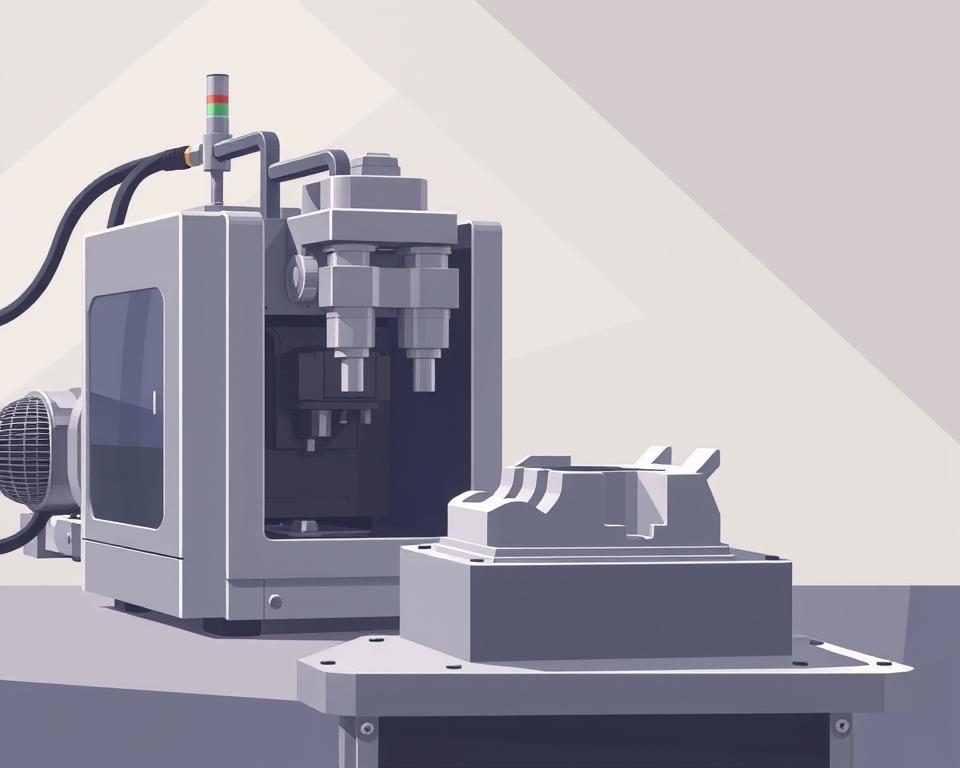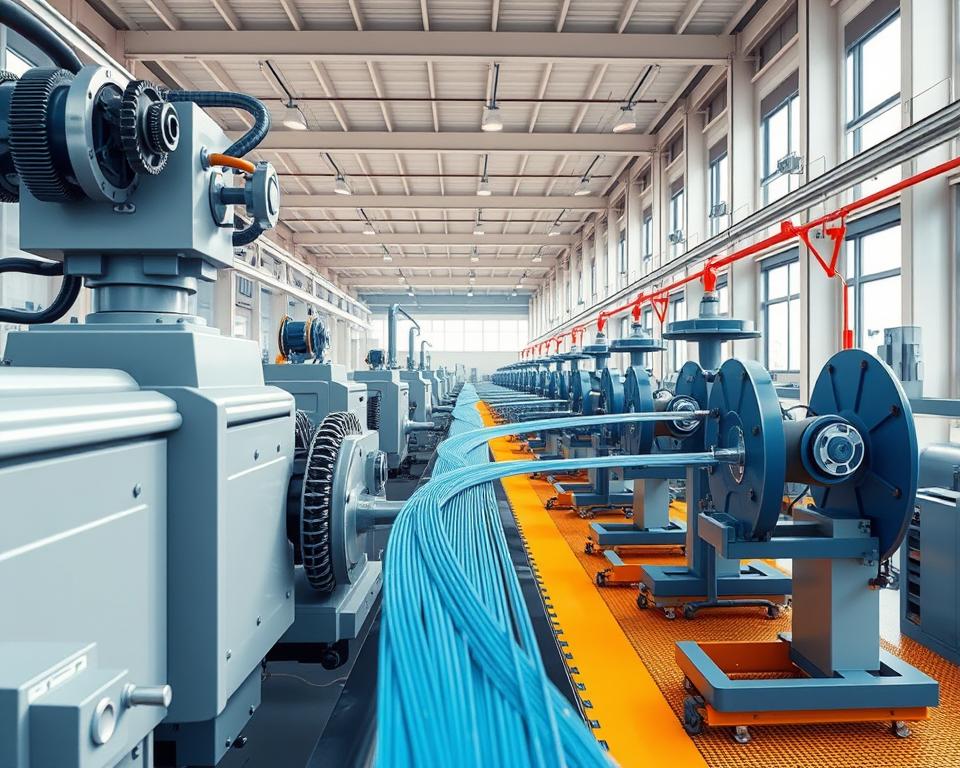Renowned EV Charging Cable Manufacturers for Your Electric Vehicle
The EV market is expanding rapidly, with the demand for dependable and high-performance charging solutions increasing sharply. As of now, top brands have been at the forefront of this change, providing top-tier charging infrastructure. Southwire, for instance, has been a significant player since 2014, boasting over 1000 five-star reviews and 75 years of experience in the electrical construction industry.
The rise in electric vehicle adoption necessitates the need for robust, fast, and safe EV Charger Manufacturers. Leading brands are pioneering to meet these evolving needs, offering products that improve the overall charging experience.
Knowing the differences between various charging solutions matters for making informed decisions. High-grade charging infrastructure directly influences vehicle performance and user experience.
Critical Findings
- Key suppliers deliver top-tier cables enhancing lifespan and protection.
- EV market expansion drives need for high-efficiency chargers.
- Leading companies innovate to meet the evolving needs of electric vehicle owners.
- Premium cables enhance both charge rate and vehicle function.
- Opting for top-tier cables yields future savings.

The Growing Importance of Quality EV Charging Cables
As electric vehicles become increasingly popular, the significance of high-quality EV charging cables is immense. The performance, safety, and reliability of electric vehicle charging systems rest on the quality of the charging cables used.
How EV Charging Tech Has Advanced
Electric vehicle charging technology has undergone significant advancements in recent years, with a priority on faster charging speeds and improved safety features. Today’s EV charging cables are built for these requirements, incorporating high-grade materials and advanced designs to minimize energy waste and maximize transfer rates.
Quality’s Impact on EV Charging
High-grade cables ensure reliable, safe charging. Durable features, such as weather resistance and flexibility in extreme temperatures, maintain performance in harsh conditions. Moreover, meeting standards and adherence to industry guidelines are crucial in ensuring that cables meet rigorous safety requirements.
| Key Features | Benefits |
|---|---|
| Superior materials and construction | Minimized power loss during energy transfer |
| Enhanced durability features | Weather resistance, flexibility in extreme temperatures |
| Standards adherence | Rigorous safety requirements met |
| Maintainability | Long-term value proposition, reduced waste |
Aichie Tech Electronics’ premium cables undergo rigorous testing at The Cable Lab. By opting for serviceable Portable EV Charger Manufacturer, repairable designs reduce lifetime costs, reducing waste and protecting the planet.
China’s Leading EV Cable Makers
A surge of cable makers in China supports the EV boom. They play a key role in global EV infrastructure, offering premium charging cables designed for different applications.
Wottz: Industry Leaders Since 2014
Wottz has established itself as a prominent player in the EV charging cable market since 2014. They offer a range of cables that cover Mode 1–4 charging standards, including Mode 1, 2, 3, and fast-charging Mode 4 DC Charging.
Aichie Tech Electronics – 75 Years in Electrical Solutions
Aichie Tech Electronics leverages 75 years of electrical expertise in its EV cables. Their products are designed to meet the demands of both domestic and commercial EV charging infrastructure.
Additional Key Cable Suppliers
Specialists in Type 1/Type 2 connectors and environmental-resistant cables are emerging players. These include specialists in Type 1 (J1772) and Type 2 (Mennekes) connectors, as well as brands innovating in cable durability and adaptability.
Types of EV Charging Cables Explained
As electric vehicles become increasingly popular, understanding the various types of EV Charging Cables is crucial for optimal charging experiences. Different cables suit different charging needs. The variety in EV charging infrastructure necessitates a closer look at the cable options.
Comparing SAE J1772 and Mennekes Cables
SAE J1772 (Type 1) and Mennekes (Type 2) are the main global standards. Type 1, also known as SAE J1772, is North American standard, while Type 2, or Mennekes, is the standard in Europe. The choice between these cables depends on the vehicle’s connector type and the charging station’s compatibility. Type 2 cables often support higher charging capacities, making them ideal for speed.
AC Level2 vs DC Fast Charging
Level 2 AC cables charge faster, up to 19.2 kW. DC Fast Charging cables, on the other hand, provide rapid charging by converting AC power to DC within the charging station, delivering rapid fill-ups. These cables are essential for long-distance EV travel, enabling drivers to recharge quickly.
Granny Chargers vs Tethered Units
Portable EV charging cables, such as “Granny chargers,” offer flexibility by allowing owners to charge their vehicles from standard household outlets. Tethered cables are fixed to charging stations, providing a convenient but less flexible charging solution. The choice comes down to flexibility vs convenience.
When selecting an EV charging cable, factors such as cable length, charging speed, and compatibility with the vehicle are crucial. For instance, portable charging cables range from basic Level1 emergency chargers to more robust Level2 solutions. Vehicle-to-load (V2L) cables let EVs act as mobile power banks.
- Portable charging cables offer flexibility, with options ranging from basic to more robust Level2 solutions.
- Fixed cables add convenience, removing cable management tasks.
- Cable length is a critical consideration, with options ranging from 5-meter standard cables to 50-meter extended cables.
Essential EV Cable Characteristics
High-quality EV charging cables are distinguished by several key features that ensure reliable and safe charging. These features are vital to safe, efficient charging.
All-Weather Durability
Cables must withstand rain, sun, and cold. Manufacturers like Wottz and Southwire use RoHS-compliant recyclable compounds, ensuring they perform in harsh climates. Their serviceable design facilitates easy maintenance and promotes recycling.
Maneuverability and Convenience
Cables need to flex yet remain tough. High-quality EV charging cables are designed to be flexible, making them easier to handle and maneuver. This flexibility is combined with rugged construction for lasting performance.
Certified Safety and Standards
Safety certifications and compliance with international standards are non-negotiable for reputable EV charging cable manufacturers. They ensure their products meet or exceed standards such as IEC62196 for connectors and UL2594 in North America. Rigorous third-party testing evaluates electrical safety, mechanical durability, and environmental resistance.
| Certification | Description | Region |
|---|---|---|
| IEC62196 | Connector safety standards | International |
| UL2594 | Standard for electric vehicle supply equipment | North America |
| ROHS | Restriction of hazardous substances | International |
By focusing on these key features, manufacturers can provide EV charging cables that not only meet the highest quality and safety standards but also enhance the overall user experience.
Innovative Technologies from Leading EV Charging Cable Manufacturers
New cable tech is transforming EV charging, with a focus on ultra-fast charging, reliable data transfer, and eco-friendly materials.
Thermal-Managed Fast Charging
Liquid-cooled charging cables are emerging as a key technology for ultra-fast charging, enabling electric vehicles to charge at significantly higher speeds without overheating.
Advanced Connector Tech
Hyperboloid contacts are being integrated into EV charging cables to enhance signal integrity, ensuring stable communication and power flow.
Eco-Friendly Cable Compounds
Leading manufacturers are prioritizing sustainability in their cable designs, using recyclable materials and eco-friendly compounds that reduce environmental impact. For instance, companies like Aichie Tech Electronics and Wottz are embracing repairable designs and strict standards to foster reuse.
Programs for cable recycling, non-toxic compounds, and TPU sheaths mark the eco shift.
How to Select the Right EV Charging Cable for Your Vehicle
Choosing the right EV charging cable is crucial for efficient and safe charging. To make an informed decision, consider several key factors.
Connector Compatibility
Ensure the charging cable is compatible with your vehicle’s connector type. Your vehicle’s onboard charger capacity sets the upper limit for AC power.
Picking the Right Cable Length
Select a cord length based on parking and outlet location. A longer cable provides more flexibility but may be heavier and less manageable.
Power Rating & Charge Rate
Match your cable’s power handling to your vehicle’s capabilities. Standard Level 2 home charging operates at 7.2 kW, but some vehicles support up to 19.2 kW with appropriate electrical service.
Mind these points to pick a cable that fits your EV lifestyle.
Final Thoughts on Premium EV Cables
As the electric vehicle market continues to expand, the importance of quality charging infrastructure cannot be overstated. Choosing cables from Wottz or Aichie Tech Electronics provides long-term value and reliability. Their serviceable designs enable repairs over replacements to cut waste. This approach supports eco-friendly EV use.
Selecting top-grade infrastructure prepares you for next-gen charging.


